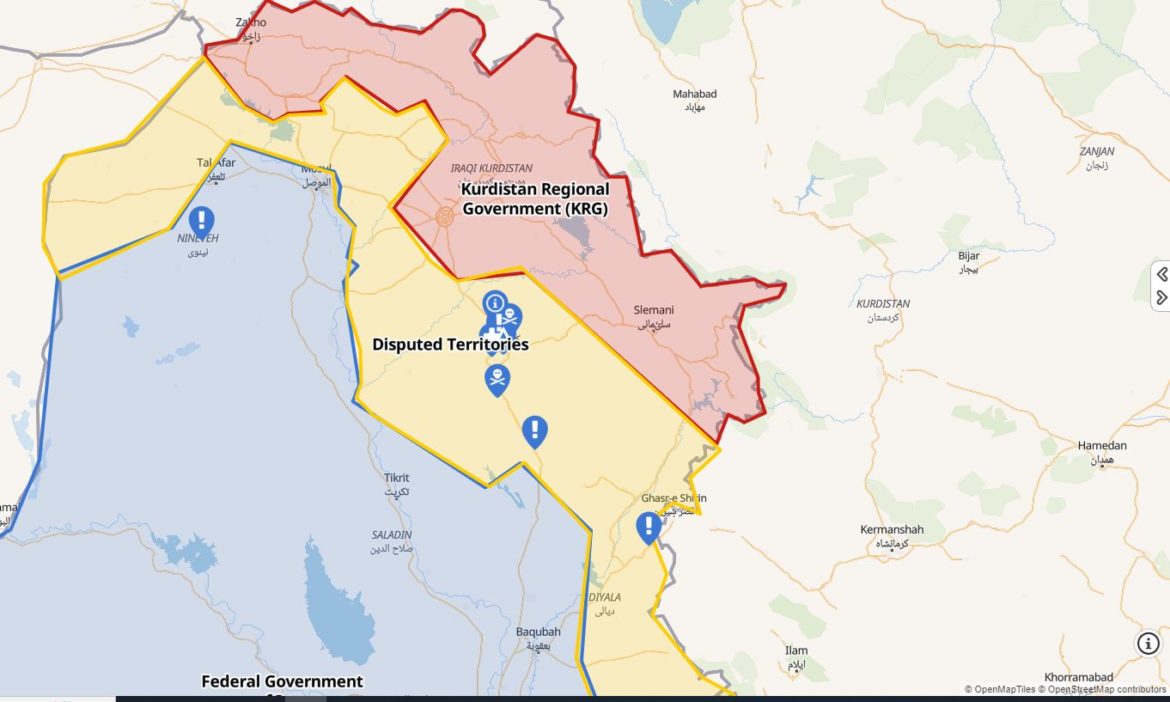1.2K
Kirkuk
- On August 10, the Kirkuk administration launched an online application for one thousand job openings. The job listings require the place of birth of only fifteen Iraqi provinces, excluding the Kurdish region. However, most Kurdish youths are born in the four provinces of the Kurdistan Region during displacement by the al Ba’ath regime before 2003. Moreover, the requirement includes “places of issuance of identity cards,” which also excludes the Kurdistan Region, depriving some Kirkuk Kurds living in the Qadirkaram district, administered by the Kurdistan Regional Government (KRG). In allocating shares for minorities, the Kakai Kurds have been excluded, whose history is older than that of other minorities in Kirkuk. Finally, the priority of employment to the relatives of the fallen in the war on ISIS (Da’esh), but it ignores the Peshmerga forces, who lost 1400 soldiers since 2014. According to the Food Security and Employment Law, 1,000 people will be employed on a contract basis for each province.
- On August 7, several healthcare workers held a rally in front of the health department demanding the payment of their salaries. According to the protesters, about 209 health workers, including nurses and medical assistants, have been employed for nine months but have not been paid any salaries.
- On August 8, a military court sentenced a police major named Saman Ramazan, director of the Azadi Crime Prevention Police, to three and a half years in prison and dismissed him from service. Alongside Saman, another officer was sentenced to six and half years. Both officers were charged with receiving bribes to close a case. Separately, Kirkuk police announced the arrest of thirty foreigners illegally residing in the city, including two captured in a tanker truck near Pirdi district.
- On August 10, ISIS (Da’esh) terrorists fired three missiles at an Iraqi army position in the Chupghani area of Daquq district, wounding three soldiers. Simultaneously, Da’esh killed an Iraqi lieutenant and injured two other officers of the 45th Brigade near the same place after clashes.
- On August 5, the police found the corpse of an employee in Kirkuk’s 4th municipality named Ahmed Fazil, who was in charge of eliminating illegal buildings of government properties. Local social media account accused a gangster of his death concerning his responsibility. Since October 16, 2017, thousands of illegal homes have been built in Kirkuk. Separately, on August 6, after fifteen days of disappearance, the corpse of a mentally challenged man named Rebaz Rasul was found on the city’s outskirts. After being sent to the forensic medical examination, it was revealed that his kidneys had been removed and left on the plains to be mutilated by stray dogs. Kirkuk police denied that Rasul’s kidneys were removed. However, due to severe deformities, the Kirkuk forensic physician requested that his body be sent to the Baghdad forensic physician for a thorough investigation. Iraq emerges as an organ trafficking hub.
- On August 9, owners of privately-owned public generators held a demonstration in front of the oil products distribution office demanding gasoline at the government rates. Similar protesters in several cities and provinces called on the government to resume subsidies to provide residents with electricity at fair prices. Likewise, in the Raparain neighborhood, Kurdish residents rallied against the lack of electricity for “twelve consecutive days.”
Khanaqin
- On August 6, residents of villages in the Bekhas area of Khanaqin demonstrated and blocked the main road between Kalar and Khanaqin. The protesters said the water had been blocked in five villages for ten days, and their crops dried up. Khanaqin’s water source is on the Alwand River, which Iran has significantly cut off for several years. The Garmian Water Directorate, in a statement, attributed the reason for the water withdrawal to the significant decrease in the dam’s water levels, arguing that “water to be used only for drinking and not for agriculture.” Separately, due to the deterioration of the services, mainly electricity, several activists threatened to launch “massive” demonstrations, including blocking the Munthiriya border crossing.
Tuz Khurmatu
- The Kurdish parliamentarian Mullah Karim Shukur of Tuz Khurmatu district said that 600 Kurdish families who were displaced on October 16, 2017, have not returned to their homes. Shukur revealed that the “families are waiting for compensation to repair their houses and return, because their houses were demolished and burned on October 16, 2017” Iranian-backed militias, including Shia Turkmen militants, destroyed hundreds of Kurdish homes and displaced thousands of families.
- On August 8, eight Kurdish officers from Tuz Khurmatu police were transferred to the Saladin police command. The decision has caused protests from the Kurdish community because with the departure of these officers, the proportion of Kurdish officers in the police decreased dramatically. Currently, 13% of the police officers in Khurmatu are Kurds, while Arabs and Turkmen make up 40%.
Shingal (Sinjar)
- On August 6, seventy tribal chiefs in Mosul attended a conference marking the anniversary of the Yazidi genocide. The tribal chiefs called for the declaration of a peace process in Mosul. The final statement demanded the government and international organizations start the peace process in Sinjar to end the problems in the city. They also called for security to be provided to the people of Sinjar and compensation for the victims.
.

